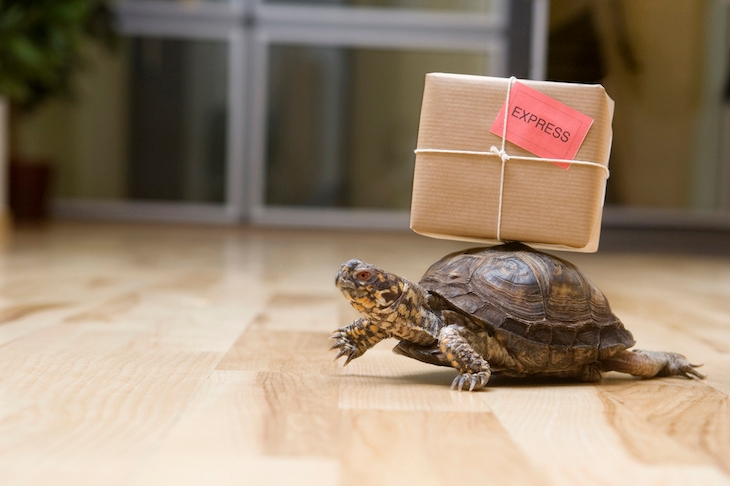You can try to change people’s minds, but this is difficult. You can bribe people to change their behaviour, but it’s expensive. Far simpler is to make the new behaviour easy and enjoyable in and of itself.
Recently, colleagues of mine were asked how to promote the habit of recycling domestic refuse. They explained there was no need to mention the environmental benefits at all. ‘Just make sure everyone has two pedal bins, not one.’ Regardless of people’s attitudes to the environment, what really matters, as Martin Luther King might have said, is not the colour of their politics but the contents of their kitchen.
To encourage pension saving, the government spends more than £20 billion annually in tax rebates. To swathes of the population, this enormous and wasteful incentive is entirely unmotivating. What finally did persuade eight million people to join workplace pension schemes was something called auto enrolment — a fancy government term for ‘You don’t have to fill in any sodding forms’.
Likewise, economic models of free trade set great store on whether the EU tariff on cheddar after Brexit will be 3 per cent or 4 per cent. This is largely irrelevant: trade facilitation matters more than tariff reduction. A better starting point for UK trade policy might be to ensure that a normally sane individual in the UK can send something overseas without tearing his frigging hair out.
A few months ago I sent a small box of British foods to an expat friend in Canada who was recovering from cancer. They crossed the Atlantic in ten hours, then spent three days in a warehouse in Toronto. Apparently I needed to appoint a ‘Customs Broker’. (Naturally I had a wide selection of Ontarian Customs Brokers on speed dial. They then demanded a ‘commercial invoice’ or ‘bill of lading’. I vainly tried to explain to the maple suckers that I was happy to pay any duty owed, but that I’d sent ten packets of Twiglets, not a bloody doomsday device. It was yet another week before they were actually delivered.
Last month in Santa Fe I wanted to post some of my luggage home. I put it in a box, paid $100 for Priority Air (CH022836798US, if you want to check) and filled out the customs form in full. By evening it had reached Albuquerque and was at LAX the following day. It then sat in customs for three weeks. After a weekend recovering from the flight to London, it spent a further week in Warwick so British customs could charge me £50 in VAT for re-importing my British-bought clothes. It arrived a month after I had posted it. This is an average speed of 6.25 miles per hour — with customs delays eradicating any advances in transportation from the past 150 years. Subtracting the hours it spent in the air, it averaged 2.3 miles per hour. On good days the Donner Party did better than this.
No I’m not totally naive. I realise that when Nissan exports cars it doesn’t put them in the post. Nevertheless, if you believe in trade, it should be something available not only to multinationals but to small firms and individuals who can’t afford to employ rooms full of bureaucrats who know what a ‘bill of lading’ is.
I refuse to believe here aren’t technological solutions (Blockchain may be one) that can reduce the friction of trade and make it faster, easier and more trustworthy. The financial costs of most tariffs are now small: what we should seek is not so much free trade as pain-free trade.







Comments